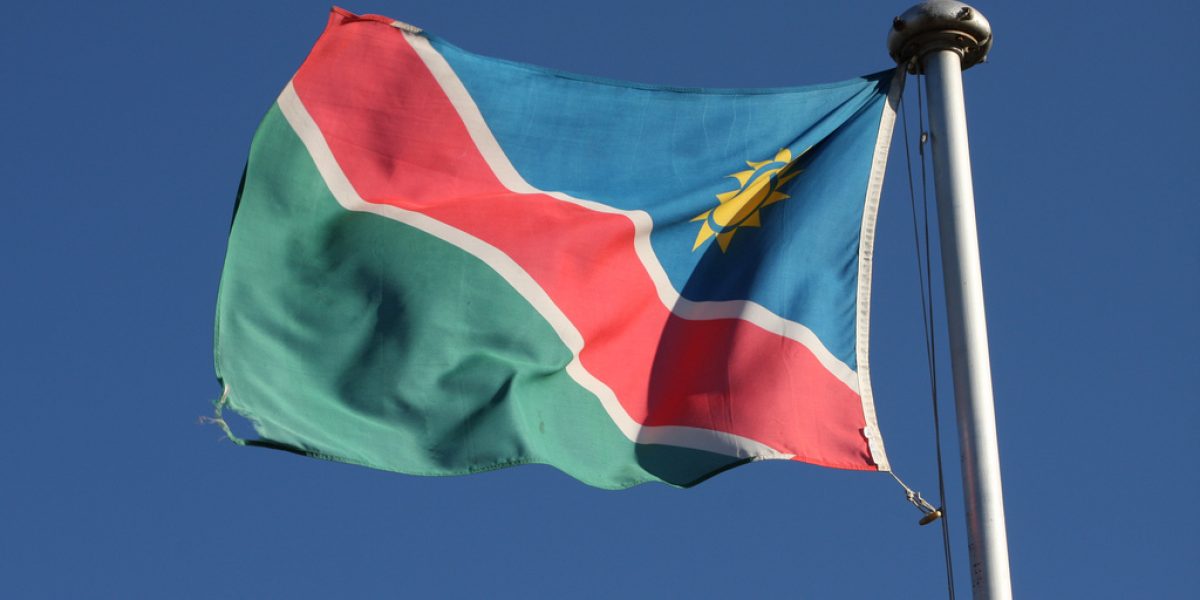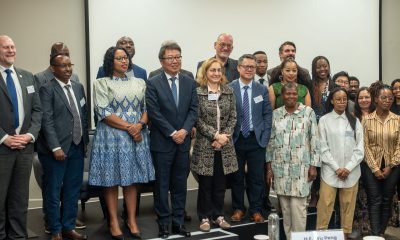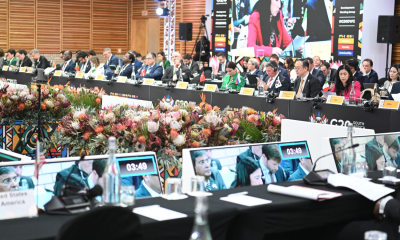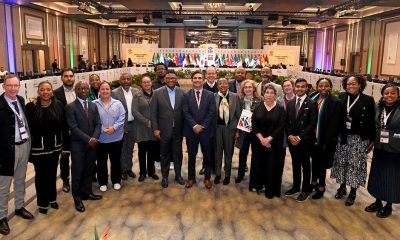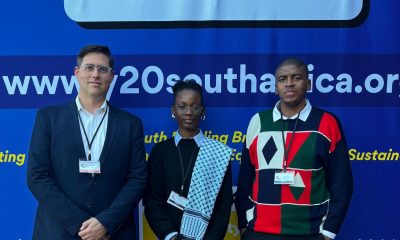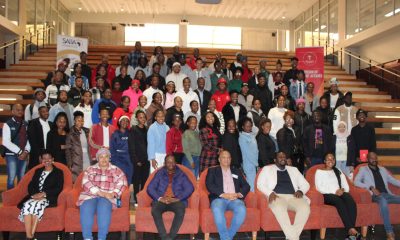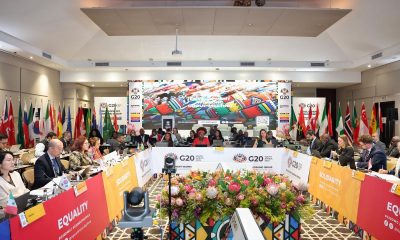The award is funded by the Oppenheimer Memorial Trust and forms part of the legacy of our 75th anniversary in 2009.
Dr. Mbuende has worked in almost every tier of government. He has served at a national level in various ministerial positions in his native Namibia. Regionally, he spent 5 years as the Executive Secretary at the Southern African Development Community (SADC) in Botswana. In 2006, Dr. Mbuende became his country’s permanent representative to the United Nations until his retirement from government last year.
Joining SAIIA is like coming full circle in many respects he says. During the 1980’s he studied at the University of Lund in Sweden and lectured there for a number of years. He eventually went on to his obtain his PhD in Economic Sociology from the same university.
“I started in academia”, says Dr. Mbuende, “and I have always dreamed of a time for some reflection.”
Dr. Mbuende’s experience spans many years and bridges the local and international political landscape. While he intends to focus on issues of regional integration during his fellowship at SAIIA, he also brings with him knowledge and insights gained over decades in political life.
Dr. Mbuende will be the keynote speaker at the SAIIA’s first Speaker’s Meeting of 2011. He will speak on “Southern African Regional Integration: The Need for Acceleration.”
A short Q & A with Dr. Kaire Mbuende on how he plans to spend his time at SAIIA.
How will you use your time at SAIIA as Distinguished African Fellow for 2011?
KM: At SAIIA, since this is really a short period of time, even though our association will go beyond the time I will spend here, I would like to go back to how we strengthen regional arrangements – to make them effective, to deliver on national development as well as effective participation in global affairs.
Of course regional arrangements encompass various dimensions. There’s the issue of peace and security, there’s the issue of trade and investment, the development of infrastructure, the harmonisation of policies. But what I think is key is how we enhance capacity for regional integration.
When you talk about regional integration what are the kind of issues you have in mind?
KM: I believe there is a need to improve the governance structure of [the Southern African Development Community] SADC. The world is dynamic, there are things happening every day. And if major decisions are made by the only once a year or by the integrated committee of ministers only twice a year, then of course we will we lag behind global development and developments to which the regional is to respond.
So I think there is a need for a mechanism that allows for a continuous process of decision making and that mechanism doesn’t exists now. There are a lot of ad-hoc meetings amongst leaders to respond to emerging issues or situations. But I think there is space for a more institutionalised form of continuous intergovernmental decision-making at a regional level.
How do you feel you about returning to a space to research and reflect having started out as a university lecturer in 1980?
KM: I think it’s a full circle for me but I also want to do policy relevant academic work. I’m going back to academia with hindsight because I am now experienced in the management of institutions. I know that sometimes you really have to take decision instantly and without thorough research.
And the implication has been that sometimes you strike luck and sometimes [it’s] not so good. So I am going back to look at what are the gaps and to be available to the leadership of my country, the region and of course the UN to use my experience in these various institutions.
SAIIA Communications Manager Chevon Erasmus Porter conducted the interview with Dr. Mbuende.

